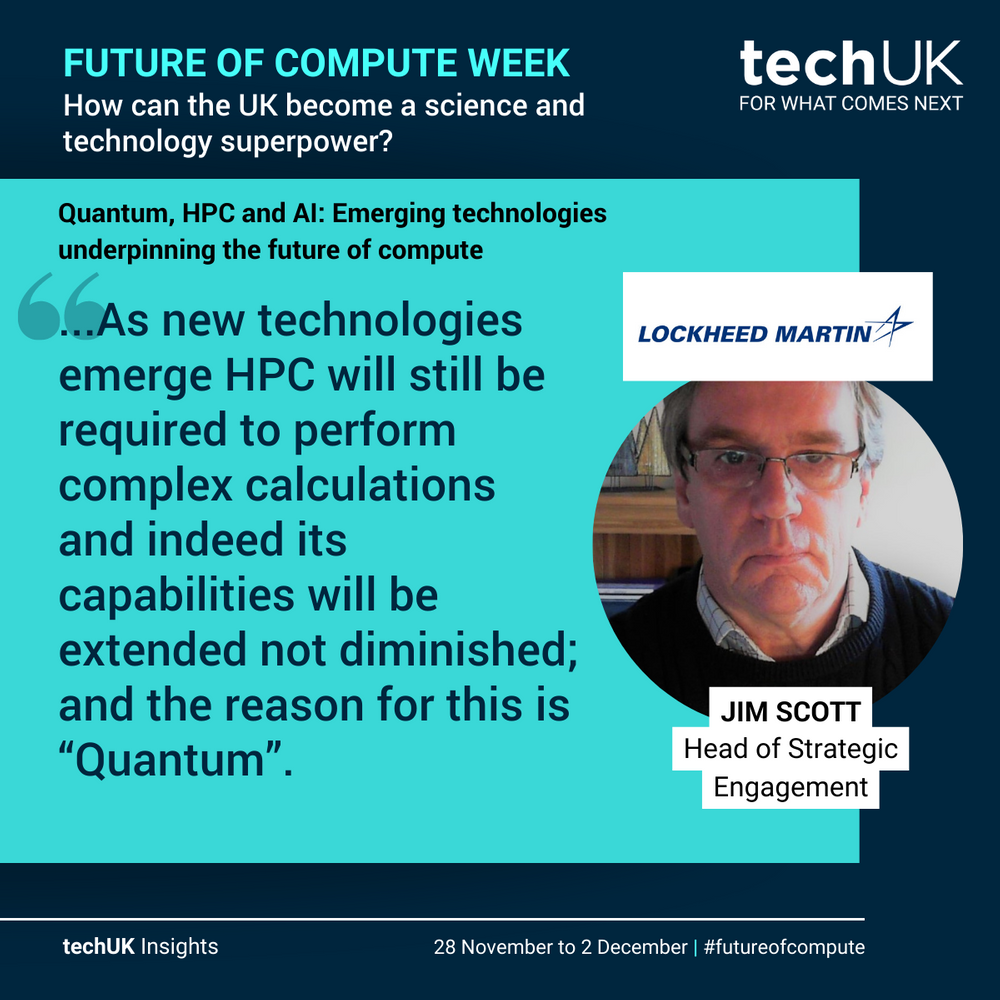The Emergence of 21st Century Technologies – A Revolution is Coming

Author: Jim Scott, Head of Strategic Engagement at Lockheed Martin UK
The next step in civilisation's roadmap beyond the Digital Age is the leap into the Quantum Age, with the associated convergence of technologies that will accelerate scientific discovery.
This will occur across many sectors, including Pharmaceuticals, Aerospace, Defence, Data, Autonomy and Finance – so “everywhere”
There is enormous potential, extraordinary challenges, but a revolution is coming! Government, Industry and Academia “Working as One” to deliver 21st Century Technologies.
Artificial Intelligence (AI)
AI is real now, with plenty of challenges, but it is adding value. It can be utilised to discover and find patterns in large data sets, it understands how a complex system is affected by many different inputs, where a critical element is the quality and format of the information.
It is rapidly transforming our lives, it can hunt for and exploit data to create advantages and enhancements - It is a critical enabler which is attracting a strategic focus on the journey to accelerate the emergence of 21st technologies.
High Performance Computer
The aggregation of compute power by developing a capability where an HPC is created, utilising thousands of computer nodes working in parallel allows complex problems to be solved quickly. This is particularly true as more organisations transition to data-driven environments.
As new technologies emerge HPC will still be required to perform complex calculations and indeed its capabilities will be extended not diminished; and the reason for this is “Quantum”.
Quantum
Classical computers operate in a binary mode, utilising “bit’s” - which can be 1 or 0, quantum utilises “qubits” – they have a value that is either 0, 1 or something in-between; crucially their processing power as the number of qubits is added increases exponentially, classical systems increase linearly.
Quantum will enhance the performance of computers, sensors, and communications beyond what is possible with current classical systems, but it will not replace them as there are many situations where the binary characteristics of a classical system are more suitable than a quantum solution.
Quantum processing, supplemented by neural networks will deliver enhanced compute for very specific problems. These neural networks are inspired by the human brain, imitating the way that biological neurons communicate, they know how to learn from data - qubits works like nature.
5G Wireless Networks
5G networks will deliver robust, higher throughput with very low-latency that is required for the emergent technology platforms, it’s an enabler to fully harness the power of AI and Data.
5G will also accommodate more devices, with secure connectivity to the hyper-scale cloud environment – Every device becomes a sensor for gathering data – which can then be exploited centrally.
A Final Observation
It’s clear that the emergence of these new technologies has become an essential and pervasive element of our lives, not only the technology, but an element that is key to the United Kingdom (UK) becoming a global centre of excellence is the – “upskilling of its people”.
Without the appropriate skills the utilisation and development of new technologies to drive compute enhancements will remain truncated and ultimately disappointing.
Government, Industry and Academia have recognised this fact as a significant risk and there are numerous investment programmes on-going to mitigate the lack of skills and to ensure the UK is at the forefront of enhancing compute expertise.
The National AI Strategy National AI Strategy, National Quantum Computer Centre NQCC, the Hartree National Centre for Digital Innovation Hartree Centre and the Newcastle National Innovation Centre for Data NICD to name a few, illustrate the importance of these technologies to the UK.
It is a challenge, but also a fantastic opportunity to demonstrate leadership in a wonderful technological age, where we can augment the reputation of the UK to a global audience.
Everyone is doing it! – lets be sure we do it - innovatively, at pace, and better!

Rory Daniels
Rory joined techUK in June 2023 after three years in the Civil Service on its Fast Stream leadership development programme.

Ella Shuter
Ella joined techUK in July 2025 as Junior Programme Manager for Emerging Technologies.

Laura Foster
Laura is techUK’s Associate Director for Technology and Innovation.

Elis Thomas
Elis joined techUK in December 2023 as a Programme Manager for Tech and Innovation, focusing on Semiconductors and Digital ID.


